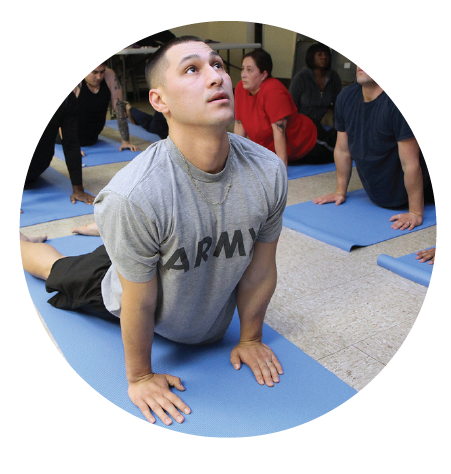 Researchers from the University of Connecticut, Boston University, and the University of California-San Diego conducted a "literature review" of all available formal studies published by the medical and psychological community that used yoga interventions to promote or treat physical and mental well-being. The National Institute of Health’s National Center for Complementary and Alternative Medicine (NCCAM) funded the study.
Researchers from the University of Connecticut, Boston University, and the University of California-San Diego conducted a "literature review" of all available formal studies published by the medical and psychological community that used yoga interventions to promote or treat physical and mental well-being. The National Institute of Health’s National Center for Complementary and Alternative Medicine (NCCAM) funded the study.
The researchers set a goal of informing the development of a measurement tool that will help yoga researchers better describe their interventions, "develop protocols for future interventions," and aggregate research findings, thereby providing clarity regarding yoga's impact on health and well-being.
Published by the American Journal of Preventive Medicine, the review notes yoga's increasing popularity among the general population "in response to various health conditions" as well as the increasing amount of available yoga therapy research.
"The variety of health or well-being outcomes targeted by yoga interventions is impressive," stated the researchers. "Various conditions have been treated, including cancer, chronic low back pain, and psychiatric illnesses such as depression and anxiety. However, interventions most often targeted physiologic responses such as heart rate, metabolic and hormonal changes, and respiratory rates."
According to the article, the lack of detail in published manuscripts and the many lineages of yoga make it difficult to compare available studies. That hindrance "limits researchers' ability to understand the mechanisms by which yoga affects physical and mental well-being."
The review concluded that although there have been many promising findings in yoga research, "yoga interventionists need better methods and tools to describe their interventions." While many studies discuss the fundamentals of yoga according to Patanjali’s eight limbs, researchers need more specific methodological detail to advance future analysis and results regarding yoga's efficacy. In addition to the diversity of yoga interventions and inadequate coverage of the topic in available literature, the researchers cited "weak study design" as a hindrance to their review.
Overall, future yoga studies need to describe and measure yoga interventions better by including "the components of yoga... paying careful attention to the duration, frequency, dose, location of yoga, additional emphases of yoga, instructor training, home practice description, and potential sources of bias that can result in low-quality yoga intervention studies."
To address the limitations in yoga research that were discovered in the literature review, the research team designed a measurement tool called the Essential Properties of Yoga Questionnaire (EPYQ). The EPYQ was recently field-tested online across the U.S. and internationally. Additionally, the research team just received funding to work specifically with active-duty military and veterans to ensure that their experiences with yoga were included in the field-testing of this important measurement tool.
Photo courtesy of Army Medicine.